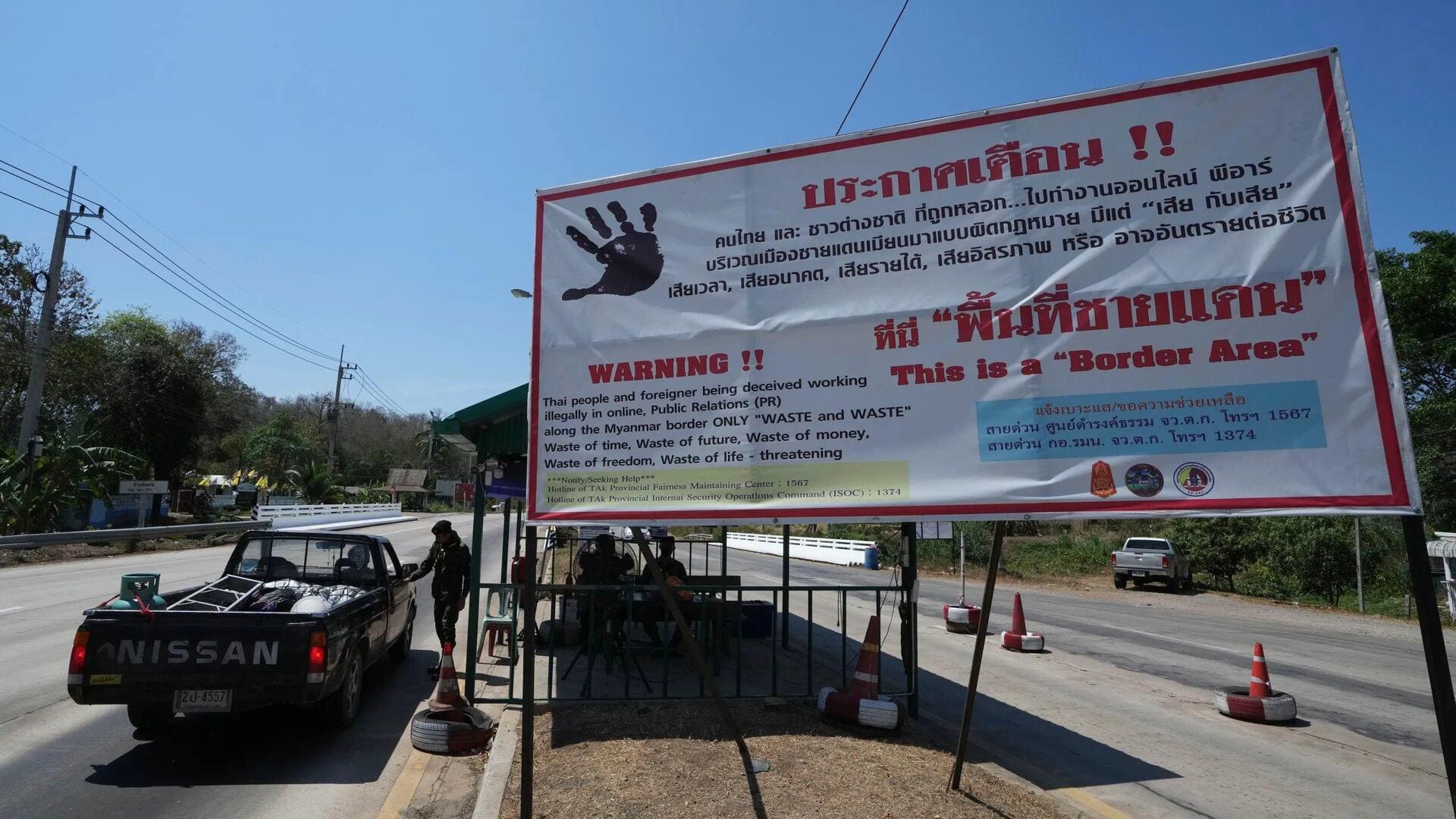
Over 7,000 await repatriation after scam centers crackdown in Myanmar
What's the story
A joint operation by Thailand, Myanmar, and China against online scam centers has stranded over 7,000 people from different countries in a border town.
The victims were lured into working for these fraudulent operations across Myanmar, Cambodia, and Laos.
Once in these cities, they financially exploit people all around the world through phony romances, investment pitches, and illicit gambling scams.
Crisis management
Thai authorities scramble to manage repatriation crisis
The crackdown comes after Thai Prime Minister Paetongtarn Shinawatra's visit to Beijing this month.
During the visit, she told Chinese President Xi Jinping that Thailand will take action against the fraud networks that had ensnared hundreds of thousands.
Thai authorities now find themselves racing against time to contain the situation, with Deputy Prime Minister Phumtham Wechayachai voicing concerns over possible problems if the process is delayed.
Repatriation progress
Majority of those awaiting repatriation are Chinese nationals
"I'm also worried that if we don't hurry up the process, it would become a problem if they can't handle it and let them loose," Wechayachai told reporters in Bangkok.
However, logistical challenges like verifying identities have slowed down repatriation efforts.
Over half of those awaiting repatriation are Chinese nationals. Last week, over 600 Chinese citizens were repatriated over four days, with China chartering 16 flights for their return.
Border measures
Thailand cuts off supplies to areas hosting scam centers
Before that, around 260 people from 20 countries crossed into Thai custody from Myanmar as part of the crackdown. Over 100 remain in Thailand awaiting repatriation.
Many of these people were trafficked to Myanmar via Mae Sot, which is currently a hub for mass repatriation efforts.
As part of its crackdown, Thailand has cut off electricity, internet, and gas supplies to areas hosting scam centers along the border.
Soldiers are also conducting vehicle checks and asking for identification at checkpoints.